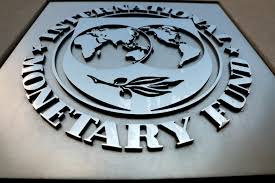IMF $1 Trillion Mobilization Lending Capacity to Fight Coronavirus
- Posted on March 16, 2020
- Editors Pick
- By Glory

The International Monetary Fund (IMF) has recently announced that it would launch its $1 trillion lending capacity as a strategy to help developed and developing countries fight against the coronavirus pandemic. The IMF’s announcement follows the Federal Reserve zero rate cut and discount window announcements.
The IMF made its announcement on Monday, saying that it “stands ready” to use the $1 trillion lending capacity as a means to help countries struggling with either the economic or humanitarian impact of the coronavirus pandemic. Kristalina Georgieva, managing director of the IMF wrote on the IMF’s website, “as a first line of defense, the Fund can deploy its flexibility and rapid disbursing emergency response toolkit to help countries with urgent balance-of-payment needs.”
In as much as the IMF is very much concerned with the financial and economic impacts its support may provide, its Catastrophe Containment and Relief Trust is places the welfare of developing countries in consideration and “can help the poorest countries with immediate debt relief, which will free up vital resources for health spending, containment, and mitigation,” Georgieva further added.
Just like the World Bank and the Federal Reserve, the IMF’s trigger for the $1 trillion lending capacity is the coronavirus pandemic. The coronavirus outbreak has not only greatly multiplied and spread among nations, but has also caused nations that haven’t sought the IMF’s assistance in a long while to suddenly cry out for help; one of which is Iran.
For the first time in 60 years, Iran has requested a $5-billion-dollar loan from the IMF to fight the coronavirus outbreak. Iran has the highest coronavirus infection records in the Middle East with over 10,000 infected people and a rising death toll of 429, so far. The country had indicated an interest in financial assistance after the IMF announced that it would make funds available for infected countries via its Rapid Financial Instrument unit.
Iran currently stands as the most affected country in the Middle East and ranks the third most affected country in the world. This has made the country come out of its financial independence since 1962.
Initially, the IMF stated its intention of availing $50 billion via its rapid-disbursing emergency financing facilities to help income and emerging market countries that would likely seek the IMF’s support. $10 billion from the total amount would be made available to developing or poor nations via the Rapid Credit Facility.
At a joint press conference with the World Bank Group President, the managing director of the IMF, Kristalina Georgieva in her statement said that “We know that the disease is spreading quickly. With over one-third of our membership affected directly, this is no longer a regional issue—it is a global problem calling for a global response.”
“Experience suggests that about one-third of the economic losses from the disease will be direct costs: from loss of life, workplace closures, and quarantines. The remaining two-thirds will be indirect, reflecting a retrenchment in consumer confidence and business behavior and a tightening in financial markets,” she said.


Be the first to comment!
You must login to comment